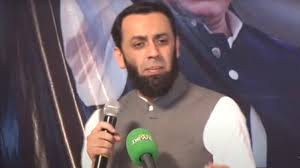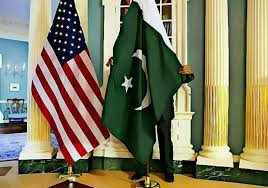EU climate divisions give foretaste of fight looming at COP28

Brussels: A hard-won deal on the European Union’s negotiating stance for this year’s U.N. climate talks has revealed regional rifts that anticipate global tensions at the COP28 summit.
Diplomats from the 27 EU countries spent weeks debating their COP28 position before their climate ministers agreed on Monday to push for deals to phase out CO2-emitting fossil fuels, triple production of renewable energy and halt the building of coal power plants.
The stance sets the EU up to be among the most ambitious major economies at the COP28 gathering of nearly 200 countries, which begins on Nov. 30.
But even EU countries clashed over how ambitious to be – and their ministers were locked in talks into the evening on Monday. The faultlines tended to fall between wealthier EU members seeking rapid climate action, and poorer economies concerned about the cost of quitting fossil fuels.
The toughest issue concerns fossil fuels – with the EU only agreeing to support a phase-out of coal, oil and gas after Poland, the Czech Republic and other nations won a concession that provides certain industrial sectors with the option to keep consuming fossil fuels if technologies are used to abate – meaning capture – the resulting emissions.
EU countries also disagreed over how fast to phase out fossil fuel subsidies, eventually approving a vague deal with exemptions and no end date after some countries objected to a proposed 2025 deadline.
The disputes are a foretaste of the fights to come at COP28, where Europe’s call to stop burning CO2-emitting fuels will run into the arguments of the world’s biggest fossil fuel producers, consumers, as well as poorer nations that say they cannot cut CO2 emissions fast enough without significantly more financial support from wealthy nations.
Tensions are building. In a document submitted to the U.N.’s climate secretariat (UNFCCC) last month, Russia said it would oppose a phase-out.
“We oppose any provisions or outcomes that somehow discriminate or call for phase-out of any specific energy source or fossil fuel type,” the document said.
Another submission, by Saudi Arabia, did not explicitly mention a fossil fuel phase-out. Saudi Arabia was among those to resist a proposal to phase down fossil fuels during last year’s U.N. climate talks.
The resistance shows how hard it will be to strike an ambitious climate deal at COP28.
“I am not very hopeful,” Carlos Fuller, U.N. climate negotiator for Belize, said of the fossil fuels phase-out – which Belize supports.
“I just see new exploration, new contracts being given out around the world, in both developed and developing countries,” he said.
Some diplomats are more optimistic, pointing to how quickly support has grown in the last year.
More than 80 countries got behind an Indian proposal to “phase down” fossil fuel use, which would limit it without getting rid of it altogether, at last year’s U.N. COP27 summit, but it was not passed.
Since then, G7 countries – including China, Japan and the United States – agreed for the first time to phase out unabated fossil fuels. Going into COP28, other backers include Colombia, Norway and climate-vulnerable small island states.
The African Group of Negotiators, which represents all 54 African countries in U.N. climate talks, has not ruled out the idea, provided there is leeway for poorer nations to phase out fossil fuels more slowly than developed countries with high historical emissions.
“Any agreement concerning the phasing out of fossil fuels, and any moratorium on new investments in fossil fuel production, must be applied equitably,” the group said in submission to the U.N. last month.
Decisions at U.N. climate summits require unanimous backing. With six weeks until COP28 starts, negotiators are working to find trade-offs that could bring opponents on board.
A deal at COP28 would not be binding. But its value, supporters say, would be to create a guiding light for future laws and investments.
“Decisions that come out of the COP send signals to investors… it informs national governments, local governments, companies,” Germany’s Climate Envoy Jennifer Morgan said.
She pointed to the 2015 Paris Agreement – a deal struck at that year’s U.N. climate summit, which set global targets to fight climate change that have since trickled down into national CO2-cutting targets and laws around the world.
Natalie Jones, policy adviser at think-tank the International Institute for Sustainable Development, said a U.N. deal to phase out fossil fuels could also strengthen future legal challenges against government decisions to expand fossil fuels.
“It provides a hook where ordinary people can say, hey, you agreed to this and now you had better actually do it,” she said.





